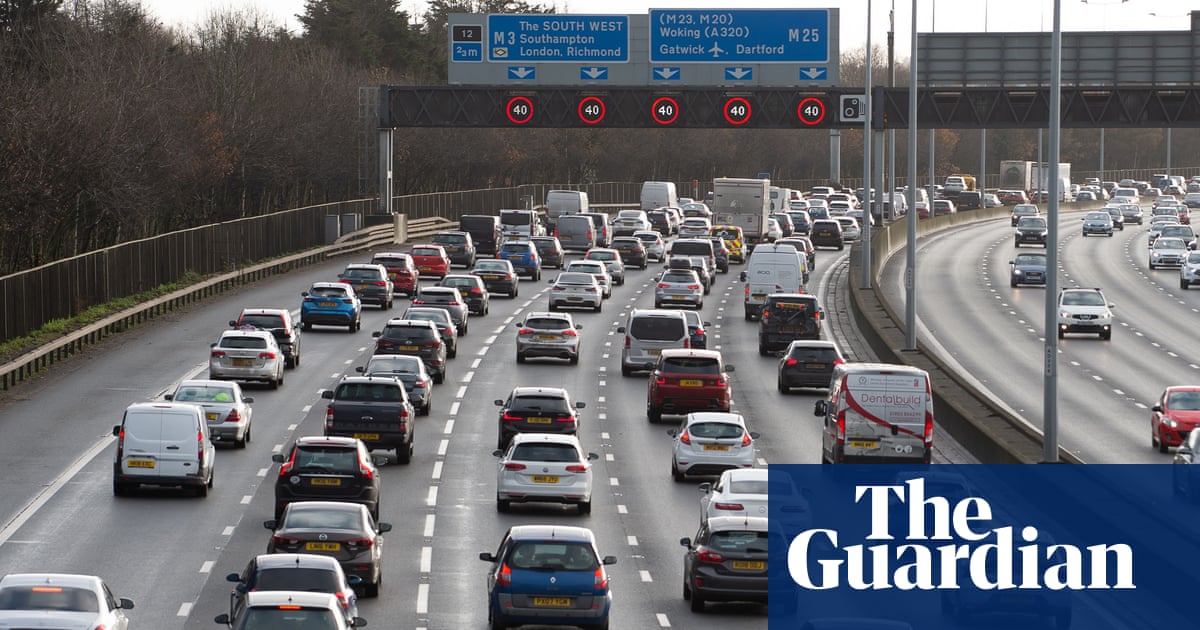
Police forces across the UK have warned people to avoid large gatherings and abide by the Covid travel restrictions that remain in place, after dry and sunny weather was forecast for much of the country over the Easter weekend.
The Met Office said conditions would be mild for most of the weekend, with highs of 14C (57F) on Sunday. Police were preparing for an influx of visitors to beauty spots but temperatures are likely to plunge and could bring snow on Monday, prompting concerns that the arctic chill could tempt people to meet inside, which is still banned under coronavirus restrictions.
“For much of this long weekend, the weather will be dry and bright. It’s not going to be as warm as it has been, but we have seen some exceptional warmth. Temperatures will just be closer to average so when the sun in shining it will feel quite pleasant,” said the meteorologist Alex Deakin, who added that there could be frost in the mornings.
“However, we are going to see a change during the weekend. Across the north that will happen on Sunday, but by Monday all parts of the UK will be significantly colder as arctic air arrives bringing hail and snow showers and a significant wind chill.” For many people temperatures will feel sub-zero, he said.
On Monday, temperatures in London may drop to 8C, Manchester 7C and Leeds 5C. The Met Office has issued a yellow warning for snow in northern Scotland from Sunday evening to Monday.
Some parts of the UK had their warmest March temperatures since records began, the Met Office said, with temperatures well above 20C and people heading to green spaces around the country.
Bude, in Cornwall, recorded its highest temperature for a March day, at 23.4C.
In England, groups of six or two households are allowed to meet outdoors, and people can take part in outdoor activities such as tennis and open-air swimming, but people are being encouraged to stay local where possible.
On Friday, the government announced the latest R estimate for England remained between 0.8 and 1.0 and the growth rate estimate for England was between -4% and 0, meaning the number of new infections was broadly flat or shrinking by up to 4% every day.
Scotland’s stay-at-home order was lifted on Friday, and replaced with a requirement to stay local. meaning people must remain in their local authority area for non-essential travel. It is still prohibited to travel between Scotland and the rest of the UK without a reasonable excuse.
In Wales, there are no restrictions on travel within the country, but people must not leave Wales, while garden centres, hairdressers and some outdoor visitor attractions have been open since 27 March.
There are also plans for a number of “kill the bill” protests across the country on Friday and Saturday, with the Metropolitan police saying organisers must submit risk assessments and take steps to keep gatherings safe, and they would take enforcement action if necessary.
The deputy assistant commissioner Jane Connors, who is leading the Met’s strategic response to Covid-19, said: “After a long and difficult few months, let’s not undo all of that hard work now.
“With nice weather on the way, we can expect to see parks and beauty spots busier than usual. Please stay safe and continue to follow the rules. Don’t crowd in open spaces and do follow the rule of six, or, only meet up with one other household.”












